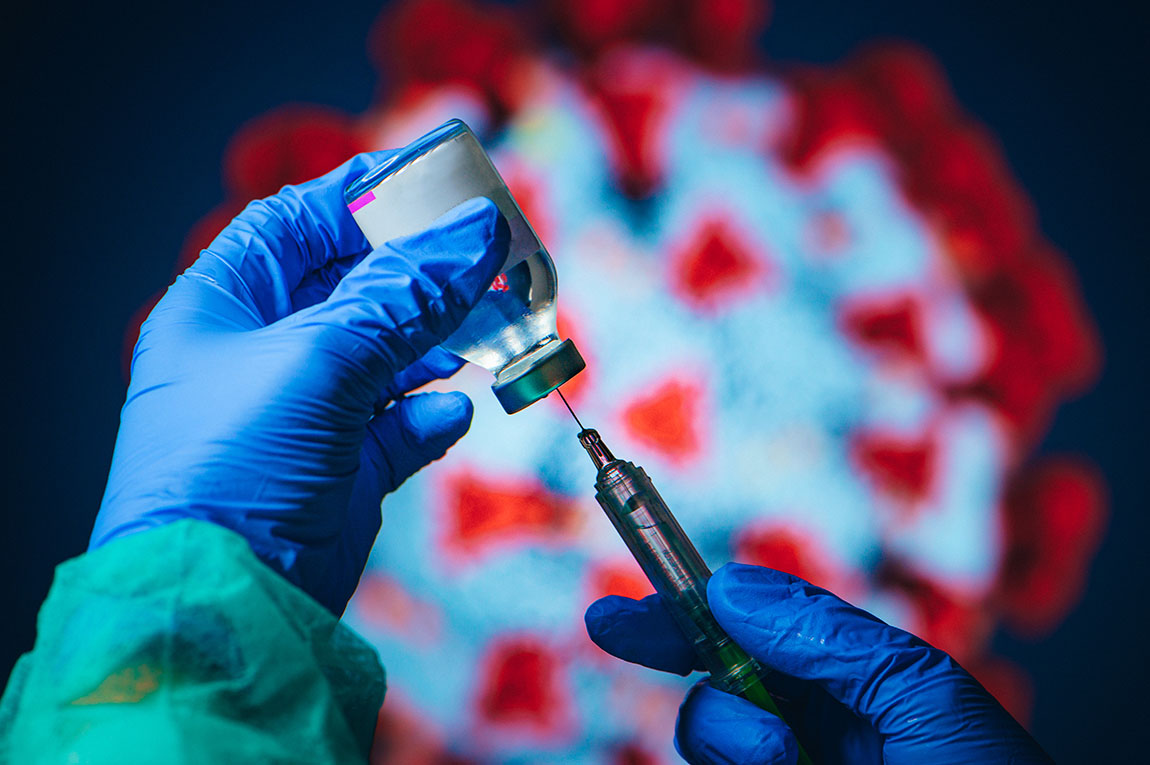Why You Should Get the COVID Vaccine As Soon As You're Able
Yes, even if you know higher-risk people who haven’t been offered a vaccine yet.By: Assistant Professor and Director of Public Health Chrysan Cronin Wednesday, January 13, 2021 10:53 AM
 Image by iStock
Image by iStockIn December 2020, the Pennsylvania Department of Health implemented a COVID-19 vaccination distribution plan that includes four phases: 1A,1B,1C and 2. The first people to receive the vaccine were health-care workers and residents of long-term care facilities. As we move out of Phase 1A and into Phase 1B, more groups of people—such as teachers and others who work in schools, daycare workers, people 75 years of age and older, grocery store workers and others—will be eligible to be vaccinated.
Many of us are anxiously awaiting our turn, but some of us are able to work from home and wonder if we should step aside and let someone else who is at “higher risk” get our doses. While this is altruistic, at this point, there is neither time nor infrastructure to weigh one individual’s risk against another’s. Because the federal government’s vaccine rollout plan is lagging far behind the intended timeline, states have had to determine the best way to get the most people vaccinated in the shortest amount of time. In Pennsylvania, the most efficient and effective way to get everyone vaccinated as quickly as possible is to adhere to the plan.
Here’s why it’s important to take the vaccine whenever it becomes available to you:
Viruses need a vulnerable living host to stay viable.
We get vaccinated so we don’t get sick with the disease, and so we don’t spread the disease to others. (Currently, we don’t have enough data to show that a vaccinated person cannot still transmit the disease, so it is important to continue to practice safety precautions.)
If viruses can't find a vulnerable living host, they are unable to replicate and they die off. Vaccinating human hosts makes humans less vulnerable to infection, and so the virus becomes less prevalent in the population. This is called “herd immunity.” Eventually, as enough people develop immunity, the virus has nowhere to go—at least in humans.
We want to get as many people to that immune state as quickly as possible to achieve herd immunity. Not only so people don't get sick, but also because…
Viruses need a vulnerable living host in which to mutate...and certain mutations could render existing vaccines ineffective.
You have probably heard about the new mutant strains of the coronavirus that have recently been identified. Viruses mutate within a living host. If we eliminate the human as a host quickly by immunizing for SARS-CoV-2, the virus that causes the disease we call COVID-19, then the current strains have less chance of finding a host available in which to mutate.
(Unfortunately, coronaviruses have other animal reservoirs—places where they can hang out and mutate—besides humans. So theoretically, this virus can retreat back into the rainforest, hang out in bats for a while, mutate and come back again. That’s beyond our control; ensuring as many human hosts get vaccinated as quickly as possible is not.)
The vaccines that are currently approved have been designed to produce antibodies against a protein spike on the coronavirus. The mutations that have already occurred do not seem to have affected that particular protein, so antibodies will still be effective. However, it is possible that if the protein spike for which the vaccine is targeted changes significantly, then the existing vaccines would not work.
As vaccines roll out, the virus is still raging in the population. Thus, there is a sense of urgency to get as many people as possible vaccinated as quickly as possible. In doing so, we reduce the number of human hosts in which the virus could mutate.
Opting to wait when a vaccine is offered to you does not guarantee that someone who is higher risk will get it in your place. (In fact, the vaccine may go to waste.)
Because the rollout of the vaccine has been logistically complicated, many of the available doses sit in freezers when they should be getting into the arms of people. To date, only 8.6 million doses have been given when over 20 million doses are available. In addition, doses of the vaccine must be disposed of if there are not enough people to take them in the window before they expire. In some cases, those who have administered the vaccines have tried to use the doses regardless of which phase a person might be in just so the vaccines won’t go to waste. This is the right thing to do.
We are all in this fight together. While we should not be jockeying for position to get the vaccine, we also should not delay when we’re told it’s our turn to receive it. It’s been a long 12 months, but the end is in sight. Group by group, we’ll all have the opportunity to be immunized very soon.
Chrysan Cronin, assistant professor and director of public health at Muhlenberg, holds a doctorate from the Johns Hopkins Bloomberg School of Public Health.
